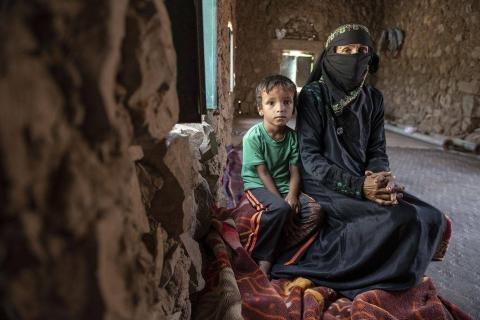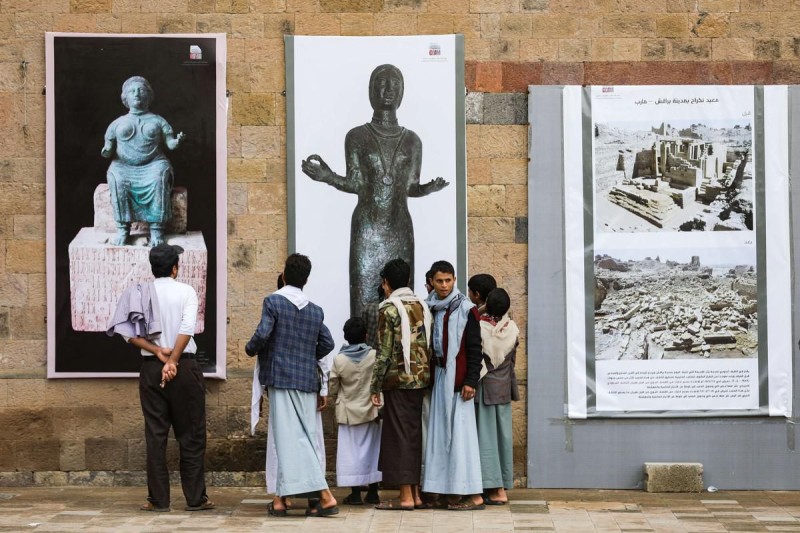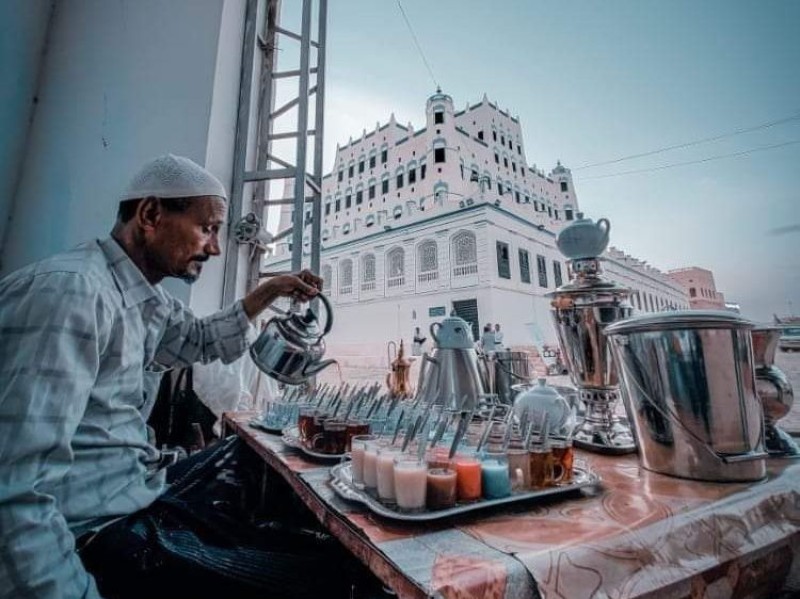UAE plans new model of aid distribution in Yemen


The UAE is to diversify its continued aid efforts in Yemen this year as the international media chooses to take a one-sided view of the conflict, the Minister of State for International Co-operation said.
Speaking to journalists during a round table discussion on Thursday, Reem Al Hashimi said the country continues to support the legitimate government and people of Yemen with food, health care and infrastructure. It is now planning to diversify its distribution plans to further the reach of its aid.
"This year we are looking at including other parties (in aid distribution) in addition to the United Nations," said the minister.
"We are looking to diversify our perspective to help empower some of the other players."
She did not specify who the other organisations would be, but said that she will meet representatives from all those currently providing aid to Yemen on 19 and 20 May in Riyadh to make a clear distribution plan.
"We will have an in-depth discussion with all parties," she said.
Last February, the UAE and Saudi Arabia pledged US$500 million (Dh1,835m) each to support Yemen in 2019.
In April, it was announced that US$200m of that will be allocated to Ramadan aid, with a focus mainly on food programmes and preventing cholera.
"We are still struggling with hunger in many places and providing access (to food).
"One assumes there is no food in Yemen, but that is not the case. There is food and the stocks are there, but the challenge is access to it," said Ms Al Hashimi.
There are 2.1 million children in Yemen who are severely malnourished. Factors that prevent access to food, the minister said, include infrastructure and Houthi forces.
She said that enough grain to feed four million people had already been sent to Yemen, but that it was then "held by Houthi forces". Although she claimed that one third of that grain has now been lost, the remaining two thirds could be saved if the Houthis were to grant access to it.
"The second challenge is food prices – salaries are not enough to buy commodities," she said, adding that a lot of people remain unemployed.
Cholera is also an issue, with damage to infrastructure making it hard to provide proper health care.
The 2019 plan also includes the strengthening of the infrastructure of Aden Port.
"We are not interested in operating the Aden Port, we are only strengthening its infrastructure," the minister said.
When asked whether there would be a Ramadan truce between the coalition forces – led by the UAE and Saudi Arabia – and Houthi forces, who are in control of the Yemeni capital Sanaa, she said: "There is a ceasefire, technically."
The Stockholm agreement was signed last December announcing a ceasefire between the warring parties; however, the UAE says the Houthis have since committed more than 3,600 violations of the ceasefire.
"A significant number of people were injured," Ms Al Hashimi said.
"I think it is important to activate the Stockholm agreement. We have hope, we are clinging to this agreement and hoping that it will come through."
She also talked about media perception of the war in Yemen, with the coalition having been criticised internationally for their efforts in Yemen.
The Houthis have been positioning themselves as the "victim" or "underdog", but that image is slowly unravelling, she said.
"When you see things like their block on access to the Red Sea mills, it exposes them for who they are.
"There are reports of horrific things done by the Houthi militias."
She said that despite this, the international media chooses to turn a blind eye to attacks committed by Houthis against coalition forces.
"On December 22, two missiles hit a UAE encampment. It wasn't covered, yet it was a clear breach of the ceasefire.
"I am confident that the truth will emerge in its own way and pace.
"A lot of things end up getting politicised very quickly, but our obligation and responsibility is to continue to stand by the fragile Yemeni society that has been struggling for decades."
AFP.

Sana’a – The General Authority for Antiquities and Museums, operating under the control of the Houthi militia in the occupied capital S…

Hadramout — UNESCO has officially inscribed Al-Dan Hadrami, a traditional poetic and musical art form from Yemen’s Hadramawt region, on…

NewYourk  -- The renowned auction house Sotheby’s has revealed plans to present one of the rarest surviving Yemenite Torah scrolls in it…